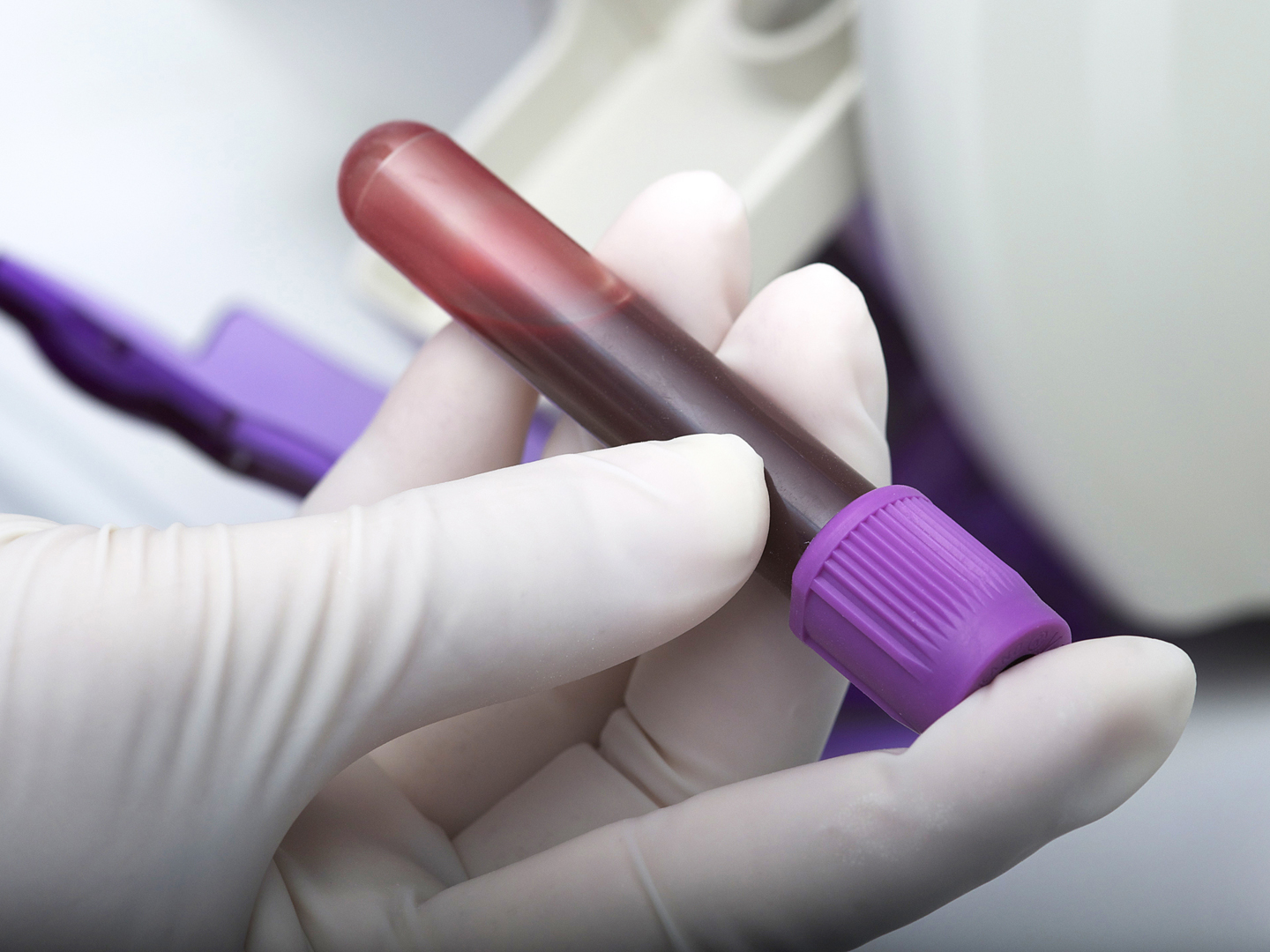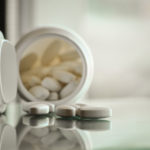HIV and AIDS

What are HIV and AIDS?
HIV is the name given to an infection by a retrovirus (the human immunodeficiency virus) that damages or destroys the cells of the immune system. Infection with HIV compromises the body’s ability to fight off other viruses, bacteria, and fungi that cause disease. HIV increases a person’s risk for developing cancer and infections such as pneumonia and meningitis. Acquired immunodeficiency syndrome (AIDS) refers to the later stages of HIV infection when the immune system is no longer able to defend the body.
What are the symptoms of HIV and AIDS?
About two to six weeks after a person first becomes infected with the virus, HIV typically first causes flu-like symptoms, such as a sore throat, fever, and headache. Many people don’t recognize any other symptoms for up to eight or nine years, and some people don’t experience any early symptoms at all.
As time passes and the virus worsens, people with HIV may begin to develop mild chronic infections and symptoms such as swollen lymph nodes, diarrhea, and chronic cough. People with HIV tend to be more susceptible to other infectious diseases and some types of cancer, including:
- Cervical cancer
- Lymphoma
- Kaposi’s sarcoma
- Pneumonia
- Tuberculosis
- Herpes simplex virus
- Human papillomavirus (HPV)
- Viral hepatitis
- Candidasis
Once a person has AIDS, he or she may develop symptoms that signal that the immune system has been seriously damaged. These include:
- Chronic diarrhea
- Nausea and vomiting
- Rapid weight loss
- Skin rashes
- Soaking night sweats
- Persistent headaches
- Shaking chills or a fever higher than 100 degrees Fahrenheit that lasts several weeks
- Blurred vision
- Dry cough or shortness of breath
- Persistent, unexplained fatigue
- Recurrent white spots or lesions on the tongue or in the mouth
- Neurological problems, such as depression, anxiety, and confusion
Who gets HIV and AIDS?
As of 2008, an estimated 33.4 million people were living with HIV worldwide. Half of these people were women and girls between age 15 and 24. AIDS affects nearly seven times more African Americans and three times more Hispanics than whites. More than four million people were newly infected with HIV in 2005 alone. An estimated 25 million people have died of AIDS since it was first identified in 1981.
HIV appears to be transmitted through direct contact with the bodily fluids of an infected person, including blood, semen, and vaginal secretions. Specifically, HIV can be spread via:
- Sexual contact, including vaginal, anal, and oral intercourse
- Blood and blood products (such as plasma) transfusions
- Sharing needles, syringes, and other intravenous drug paraphernalia
- Accidental needle sticks
- Pregnancy, childbirth, and breastfeeding
There is currently no evidence that HIV is spread through saliva, sweat, tears, urine, feces, or mosquitoes or by sharing food utensils, towels, bedding, swimming pools, telephones, and toilet seats.
What causes HIV and AIDS?
HIV is caused by infection with the HIV virus. The virus attaches to and enters white blood cells called CD4+ T-cells, often called “helper T cells”, because of their role in immune system. Normally, these lymphocytes, along with other immune cells and antibodies, attack and destroy foreign organisms that enter the body. Once HIV is inside these T-cells, it inserts its own genetic material into the nucleus and uses them to replicate. These copies of the virus break out of their host cells – which die – and enter the bloodstream, where they then attack other CD4+ T-cells. This cycle produces billions of new HIV particles every day. As the number of CD4+ T-cells in the body decreases, the body can no longer fight off disease-causing viruses and bacteria.
The US Centers for Disease Control and Prevention defines AIDS as the presence of HIV infection as shown by a positive HIV-antibody test plus a CD4+ T-cell count of 200 or less (normal is between 600 and 1,000), the development of an opportunistic infection (such as pneumonia), or both. Depending on a person’s health status and lifestyle, it can take up to 10 or 15 years for HIV infection to progress to AIDS.
How are HIV and AIDS diagnosed?
Doctors diagnose HIV by testing a person’s blood or oral mucus for antibodies to the virus, and then perform follow up tests to confirm the diagnosis. Although older tests could take up to 12 weeks to show results, some of the newer screening tests can give accurate results within 20 minutes.
How does conventional medicine treat HIV and AIDS?
HIV is a retrovirus. It differs from a normal virus by changing the way it appears to the immune system, preventing the body from stopping HIV infection on its own. Although there is currently no cure for HIV and AIDS, a “cocktail” of medications can slow the course of the disease and suppress symptoms. Treatment aims to reduce the amount of the virus in the blood to very low levels. Medications used to treat HIV and AIDS include:
- Nucleoside analogue reverse transcriptase inhibitors (NRTIs): NRTIs are the oldest antiretroviral drugs and help inhibit the production of an HIV enzyme (reverse transcriptase) needed for the virus to replicate itself. They include zidovudine (Retrovir), lamivudine (Epivir) didanosine (Videx), zalcitabine (Hivid), stavudine (Zerit) and abacavir (Ziagen). NRTIs can cause side effects such as rash, fever, fatigue, nausea, vomiting, and diarrhea.
- Protease inhibitors (PIs): These drugs interfere with an enzyme known as HIV protease. They include saquinavir (Invirase), ritonavir (Norvir), indinavir (Crixivan), nelfinavir (Viracept), amprenavir (Agenerase), lopinavir, atazanavir (Reyataz) and tipranavir (Aptivus). PIs can cause side effects such as nausea and diarrhea.
- Non-nucleoside reverse transcriptase inhibitors (NNRTIs): NNRTIs bind directly to the enzyme reverse transcriptase. They include nevirapine (Viramune), delavirdine (Rescriptor) and efavirenz (Sustiva). NNRTIs can cause rashes, dizziness, sleeplessness, and abnormal dreams.
- Nucleotide reverse transcriptase inhibitors (NtRTIs): NtRTIs are similar to NRTIs but work more quickly. The only approved NtRTI is tenofovir (Viread). It can cause nausea, vomiting, diarrhea, and gas, and raises the risk of severe liver damage.
- Fusion inhibitors: Enfuvirtide (Fuzeon) is the first in a new class of drugs called fusion inhibitors and appears to suppress the replication of strains of HIV that are resistant to other classes of HIV drugs.
- Integrase inhibitors: The first in this new class of drugs, raltegravir (Isentress), is used in combination with other antiretroviral drugs. It can cause diarrhea, nausea, headache and fever.
- CCR5 antagonists: Maraviroc (Selzentry) is the first in an emerging class of drugs used to treat a type of HIV infection called CCR5-tropic HIV-1. Its side effects include cardiovascular problems, cough, fever, upper respiratory tract infections, rash, and abdominal pain.
What therapies does Dr. Weil recommend for HIV and AIDS?
Dr. Weil emphasizes that conventional treatment with the pharmaceuticals listed above is essential for those diagnosed with HIV and AIDS. There are currently no herbal or dietary approaches that can replace the cocktail of medications.
There are, however, several practices that enhance and strengthen the immune system. Along with an anti-inflammatory diet, exercise, and other basic lifestyle activities to maintain overall health, the following techniques are specifically useful for supporting the immune system, and are especially valuable for those with HIV, AIDS or who otherwise have compromised immunity.
- Do not allow infections to persist: Do not ignore symptoms such as unexplained fevers, night sweats, or tender or swollen lymph nodes. These can indicate a hidden infection. Pay particular attention to the mouth. Pockets of germs in the gums and teeth may cause few symptoms, yet use up a lot of the body’s immune resources. It is important to maintain good oral hygiene and to have the teeth and gums examined regularly to detect any areas of infection. Sexually transmitted infections may also go unnoticed while they drain the vitality of the immune system. Observe good sexual hygiene and good hygiene of body orifices. Limit the number of sexual partners and make a habit of practicing safe sex.
- Do not use antibiotics indiscriminately: Whenever the immune system deals successfully with an infection, it emerges from the experience stronger and better able to confront similar threats in the future. Our immune competence develops in combat. If, at the first sign of infection, you always jump in with antibiotics, you do not give the system a chance to test itself and grow stronger. Antibiotics are powerful medicines that should be reserved for situations that demand them, for instance, when the immune system cannot contain a bacterial infection or when a bacterial infection establishes itself in a vital organ like the heart, lungs, or brain.
- Avoid immunosuppressive drugs: Dr. Weil is particularly concerned about the corticosteroids, or steroids. These are derivatives and relatives of cortisone in widespread use for the treatment of allergies, autoimmune diseases, and inflammatory conditions. Dr. Weil considers them powerful and dangerous drugs, much misunderstood, abused, and overprescribed. Synthetic steroids, like prednisone, are widely used in allopathic medicine today. Doctors prescribe them in many forms: as pills, injections, inhaled aerosols, and topical creams. Steroids cause allergies and inflammation to disappear as if by magic. In fact, the magic is nothing other than direct suppression of immune function. Do not use steroids in any form until you have exhausted all other possible treatments. If you must take a steroid for a severe problem, limit its use to a few weeks at most.
- Avoid blood transfusions: Blood transfusions and injections of blood products may transmit viral diseases that cannot easily be cured. They also stress the immune system by flooding it with foreign proteins. Obviously, in an emergency it may not be possible to do without blood, although synthetic blood replacers that are safer may soon become available. If you know in advance that you are going to have surgery that might require transfusion, have some of your own blood drawn and stored for any replacement you might need.
- Avoid exposure to radiation: There is a special danger to the immune system from any radiation treatments (usually for cancer), as opposed to diagnostic X rays, directed to the head, neck, or chest. The thymus gland, behind the breastbone, is very vulnerable. Insist that a lead shield be placed over it if you ever have to undergo radiation therapy. If the therapist will not comply, refuse treatment. Many doctors continue to believe that the thymus has no function in adulthood. It does; it is an integral part of your immune system.
- Avoid exposure to harmful chemicals: Chemicals that are carcinogenic also generally damage the immune system. Minimize exposures to pesticides, herbicides and other poisons, as well as dyes and colorants and industrial pollution.
- Take antioxidant supplements: A quality, basic vitamin, mineral and antioxidant formula can help maintain healthy immune function and possibly lower the risk of several cancers as well.
- Learn about foods and herbs that enhance immunity: Some of the most prized remedies in the Chinese herbal repertory are mushrooms that act as tonics – that is, they are believed to increase resistance to all kinds of stress as well as to extend longevity. Traditional Chinese medicine did not know the immune system as a set of interacting organs and cells, but it understood the concept of a defensive function of the body and taught that a useful way to treat disease was to support that function. Tonic mushrooms are supposed to do just that. Some of them are good to eat: shiitake (Lentinula edodes), oyster mushrooms (Pleurotus ostreatus), maitake (Grifola frondosa), and enoki (Flammulina velutipes), for example. Others, like reishi (Ganoderma lucidum), are too woody or too bitter to use as foods but can be used as medicinal teas or extracts.It has taken a long time for researchers in the West to pay attention to the prominence of mushrooms in traditional Asian medicine, but they are finally doing so. In general, the species that enhance immunity and protect against cancer are completely nontoxic. They also appear to be more powerful in combination than singly.
A Chinese herbal remedy with similar properties comes from the root of a plant in the pea family, Astragalus membranaceus. This plant is a relative of our locoweed, which is toxic to livestock. The Chinese species is nontoxic, the source of a very popular medicine called huang qi that you can buy in any drugstore in China for use against colds, flus, and other respiratory infections. Recent studies in the West confirm its antiviral and immune-boosting effects, and Astragalus preparations are now available in most health food stores here, and Dr. Weil recommends them often.
American Indian medicine gave us a useful native plant that is another immune-system booster: purple coneflower, Echinacea purpurea and related species. The root of this ornamental plant is held in high esteem by herbalists, naturopathic doctors, and many lay-people because of its antibiotic and immune-enhancing properties. You can buy echinacea products in any health food store: tinctures, capsules, tablets, and extracts of fresh or dried roots. Much research on it has been done in Germany, and the plant is in widespread use as a home remedy in Europe and America.
- Work at improving your mental and emotional health: For many years immunologists maintained that the immune system was the only autonomous system of the body, the only one that operated free of external controls. Dr. Weil believes this is entirely false. No system of the body is autonomous. All are interconnected, especially with the nervous system. In addition, the clinical experience of doctors who work with immune disorders is that a strong correlation exists between the ups and downs of these disorders and the ups and downs of emotional life. For example, a typical onset of rheumatoid arthritis in a young woman may be a flare-up in many joints of the body within hours of a severe emotional trauma. Clearly, emotional states like grief and depression can interfere with immunity, just as loving can enhance it. You do not need to know any more than that to be motivated to improve your emotional health. Do not try to stop or fight negative mental states. Instead, put energy into creating a positive state, and the negativity will tend to resolve. Patients with autoimmunity will often benefit from hypnotherapy, guided imagery, and other mind/body interventions.









